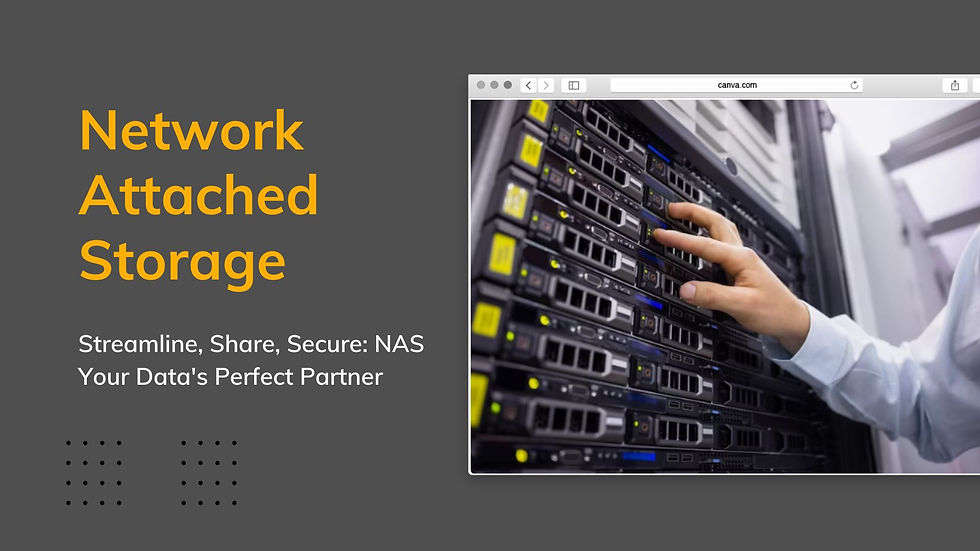Network Attached Storage (NAS): What It Is and How It Works?
- Scale out nas
- Aug 17, 2023
- 3 min read
With the ever-increasing amount of digital data generated by businesses and individuals, the need for safe and reliable storage is more important than ever. Network Attached Storage (NAS) is a solution that has gained popularity in recent times as an affordable and reliable form of data storage. If you're unfamiliar with NAS or simply looking to learn more about it, this blog post is for you. Here, we will explore what is network attached storage, how it works and what advantages it offers.
What is Network Attached Storage (NAS)?
Network Attached Storage (NAS) is a type of storage device that connects to a network rather than directly to a computer. It is essentially a server that is dedicated to storing, managing, and sharing files, documents, media, and other data types. NAS devices are typically accessed using a web interface or over the network via File Transfer Protocol (FTP), Network File System (NFS), or Server Message Block (SMB) protocols. They are equipped with one or more hard drives that are configured in such a way that data can be stored redundantly, ensuring that it is safe from hardware failures or data loss.
How Does A NAS Work?
NAS devices work by connecting to a local network via Ethernet or Wi-Fi so that data stored on the device can be accessed by other devices on the network. Users can connect to the NAS using a computer or even a smartphone to access files, folders, and media. NAS operates independently, which means that it does not require a dedicated computer to run. It runs its own operating system and includes software for file sharing, backup, multimedia streaming, and remote access. NAS can be easily configured to act as a Central location for all your data needs.

Advantages of Network Attached Storage
Network Attached Storage is highly advantageous for individuals and businesses that require large amounts of storage space. Some of the key advantages include:
- NAS affords easy access to files and folders from anywhere in the network. This is incredibly helpful for businesses that have employees in different locations.
- NAS is simple to set up and requires little maintenance. Once the initial configuration is done, the device runs automatically and reliably.
- NAS offers a higher level of security than other forms of storage. Files can be encrypted, and access to the device can be restricted.
- It provides excellent centralization for backup and file sharing within a business
- It is highly scalable to accommodate growing storage needs
Choosing a NAS Device
When selecting a network attached storage (NAS) device, there are some important factors to consider like - the number of bays it has, whether it supports a RAID configuration, the processor, and the memory. Additionally, one should consider what features the device provides, such as remote access, multimedia streaming, backup software, and mobile applications, among others. With a wide range of NAS solutions devices on the market, it is crucial to select one that meets your specific needs.
Conclusion
Overall, network attached storage provides an affordable, reliable, and centralized solution for data storage, backup, and sharing. With its advanced features, ease of use, and scalability, it is quickly becoming a popular choice for individuals and businesses alike. Once you have chosen the appropriate device, the installation process is simple, and the device is ready to use. Whether you're looking to enhance your storage capabilities in the home or office, Network Attached Storage is definitely worth considering.



Comments